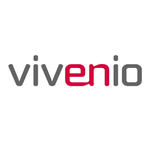Description

Concierge.com

Grip
Comprehensive Overview: Concierge.com vs Grip
As of my last update, there is no widely recognized entity specifically called "Concierge.com, Grip." However, I can break this down by addressing what the individual terms might refer to and give an overview of their potential functions, target markets, market share, and differentiation.
Concierge.com:
-
Primary Functions and Target Markets:
- Concierge.com was historically associated with premium travel and lifestyle content, offering detailed guides, planning tools, and rich editorial content for luxury travelers.
- Target Market: Primarily affluent travelers seeking curated experiences and travel inspiration.
-
Market Share and User Base:
- Given the nature of the luxury travel market, Concierge.com would aim for a niche audience interested in high-end travel solutions and experiences.
- Market share would be limited compared to mass-market travel platforms like TripAdvisor or Expedia, focusing instead on depth and personalization.
-
Key Differentiating Factors:
- High-quality editorial content and exclusive access to luxury travel experiences.
- Personalized planning tools aimed at premium travel experiences rather than budget options.
- Strong brand association with reputable travel journalism and insights.
Grip:
-
Primary Functions and Target Markets:
- Grip is an event networking app designed to enhance engagement and networking at conferences, trade shows, and other events through AI-powered matchmaking.
- Target Market: Event organizers, conference attendees, trade show participants, primarily in business and professional contexts.
-
Market Share and User Base:
- Grip serves a niche in the event tech industry, targeting both the B2B and B2C markets with services tailored to enhancing event experiences.
- The user base would consist of event professionals, conference organizers, and business attendees seeking to maximize networking opportunities.
-
Key Differentiating Factors:
- AI-driven matchmaking that customizes networking suggestions for users at events.
- Integration with event management tools and platforms to provide a seamless user experience.
- Focus on maximizing the quality and relevance of networking opportunities compared to other general event apps.
Comparison and Context:
Since Concierge.com and Grip serve entirely different industries—luxury travel and event networking, respectively—they do not directly compete. Comparisons between their market share and user base would not be meaningful without specific context on overlapping interests or partnerships, which might not exist as broadly recognized entities or direct competitors in any common space.
If you meant a specific partnership or a new venture involving these entities or similarly named organizations, I would need more specific and updated information regarding their collaboration or joint offerings.
Contact Info

Year founded :
1997
Not Available
Not Available
United States
Not Available

Year founded :
2020
Not Available
Not Available
United Kingdom
Not Available
Feature Similarity Breakdown: Concierge.com, Grip
As of my last update, Concierge.com and Grip are platforms that focus on enhancing event experiences, though they serve slightly different purposes within that spectrum. Here's a breakdown based on your requested criteria:
a) Core Features in Common:
-
Event Management: Both platforms offer comprehensive tools for event management, which may include registration, scheduling, attendee tracking, and data analytics.
-
Networking Facilitation: Both Concierge.com and Grip provide networking solutions to enhance attendee interaction, using matchmaking algorithms to connect attendees based on interests or goals.
-
Virtual and Hybrid Event Support: They both support virtual and hybrid events, offering features such as live streaming, virtual booths, and chat functionalities.
-
Analytics and Insights: Both platforms provide insights and analytics on attendee engagement, which helps organizers understand the event's impact and areas for improvement.
-
Custom Branding: They allow for customization to reflect the branding of the event or the hosting organization.
b) User Interface Comparison:
-
Concierge.com:
- Typically features a more user-centric design tailored for luxury experiences, as it's originally related to high-end travel. The interface is clean and sophisticated, focusing on personalized user journeys.
- Emphasizes ease of navigation with detailed content sections and straightforward access to event features and bookings.
-
Grip:
- Known for its intuitive and straightforward user interface, which focuses heavily on networking and AI-driven interactions.
- The dashboard is designed to prioritize user data and matchmaking features, offering a seamless experience in connecting with other attendees.
c) Unique Features that Set One Product Apart:
-
Concierge.com:
- Often associated with luxury travel content, Concierge.com might integrate travel-related features in its offerings that tailor experiences based on personalized recommendations.
- Offers concierge services that can extend beyond event management into travel and lifestyle assistance, which can be a unique add-on for events focused on luxury markets.
-
Grip:
- Grip is renowned for its AI-driven matchmaking capabilities, which are particularly advanced and tailored for optimizing networking during events. The AI suggests connections and interactions based on user interactions and preferences.
- Focuses on multi-event scenarios, allowing users to manage and switch between multiple events with ease, which could be beneficial for large organizations managing several events simultaneously.
In conclusion, while both platforms share core functionalities aimed at managing and enhancing event experiences, their distinguishing features and UI strengths cater to differing aspects of the event management and networking spectrum. Concierge.com leans towards personalized, luxury-focused experiences, while Grip excels in networking and AI-driven interactions.
Features

Personalized Recommendations
Travel Assistance
Streamlined Booking Process

Engagement Features
Data Analytics
Event Management
Networking Tools
Best Fit Use Cases: Concierge.com, Grip
Concierge.com
a) Best Fit Use Cases for Concierge.com:
-
Event Management Companies: Concierge.com is ideally suited for event management companies that require a platform to handle event logistics, registrations, attendee management, and personalized experiences.
-
Corporate Events: Businesses hosting corporate events such as conferences, seminars, and product launches will find Concierge.com effective for creating seamless experiences through its robust event planning and management tools.
-
Luxury Travel Agencies: Given its name and focus, Concierge.com may also cater well to luxury travel agencies looking to offer high-touch, personalized services to their clients, providing comprehensive itineraries and management services.
-
High-End Hospitality Services: Hotels and resorts aiming to elevate guest experiences through personalized concierge services and activity planning.
d) Industry Verticals and Company Sizes Catered to by Concierge.com:
-
Industry Verticals: Primarily serves the event management, hospitality, and luxury travel industries. It is leveraged by businesses looking to deliver exceptional, tailored experiences to attendees or clients.
-
Company Sizes: Concierge.com is typically best for medium to large enterprises that regularly host events or offer complex travel services and require an advanced degree of customization and integration in their solutions.
Grip
b) Scenarios Where Grip is the Preferred Option:
-
Virtual and Hybrid Events: Grip is highly effective for companies looking to host virtual or hybrid events, with capabilities designed to enhance networking and engagement among participants.
-
Trade Shows and Exhibitions: Ideal for organizers of trade shows, where connecting attendees with exhibitors is critical, thanks to its matchmaking and networking features.
-
Business Conferences and Networking Events: Grip’s AI-powered matchmaking makes it a strong choice for business events focused on networking and forming strategic partnerships.
d) Industry Verticals and Company Sizes Catered to by Grip:
-
Industry Verticals: Particularly strong in the technology, finance, healthcare, and professional services sectors, where business networking and relationship-building are key components of events.
-
Company Sizes: Grip scales from small startups hosting their first virtual events to large multinational corporations and event organizers managing complex, large-scale events requiring robust networking functionalities.
Both Concierge.com and Grip cater to different aspects and scales of event planning and management, with Concierge.com focusing more on the logistics and personalization aspects of luxury experiences, while Grip emphasizes networking and engagement for business-oriented events.
Pricing

Pricing Not Available

Pricing Not Available
Metrics History
Metrics History
Comparing undefined across companies
Conclusion & Final Verdict: Concierge.com vs Grip
To provide a conclusion and final verdict on Concierge.com and Grip, let's assess each product based on several key factors such as value, pros and cons, and recommendations for potential users.
a) Considering all factors, which product offers the best overall value?
The determination of the best overall value between Concierge.com and Grip depends on the specific needs and preferences of the user. However, if we consider a general assessment:
-
Concierge.com might offer the best value for users seeking a more personalized and tailored service experience, often focusing on travel and lifestyle concierge services.
-
Grip, on the other hand, could provide better value for users interested in its features related to event management and networking capabilities, particularly in business and professional settings.
b) What are the pros and cons of choosing each of these products?
Concierge.com:
-
Pros:
- Personalized service and expertise in travel and luxury experiences.
- A wide range of lifestyle services, from travel arrangements to personalized recommendations.
- Emphasis on exclusivity and high-end experiences.
-
Cons:
- May come at a higher cost due to the personalized, luxury-focused offerings.
- Services might not be as scalable or suitable for business-related event management.
Grip:
-
Pros:
- Advanced networking and matchmaking features for business events and conferences.
- Scales well for large events with many participants.
- Often includes integration with event management tools and systems.
-
Cons:
- More focused on professional and event-related contexts, which might not appeal to casual or personal users.
- May lack the personalized, high-touch service that some users seek.
c) Are there any specific recommendations for users trying to decide between Concierge.com vs Grip?
-
Consider Concierge.com if:
- You are looking for luxury travel experiences or personalized lifestyle services.
- You value exclusivity and bespoke recommendations tailored to personal preferences.
- The cost is not a primary concern, and you appreciate high-touch customer service.
-
Consider Grip if:
- You are organizing or attending business events, conferences, or networking sessions.
- You need tools for managing and enhancing event interactions.
- Scalability and integration with other event management platforms are important.
In summary, the choice between Concierge.com and Grip largely depends on whether the user is primarily seeking high-end personal services or efficient event management and networking capabilities. Understanding the core focus and strengths of each product will help users make an informed decision that aligns with their specific needs.
Add to compare
Add similar companies




